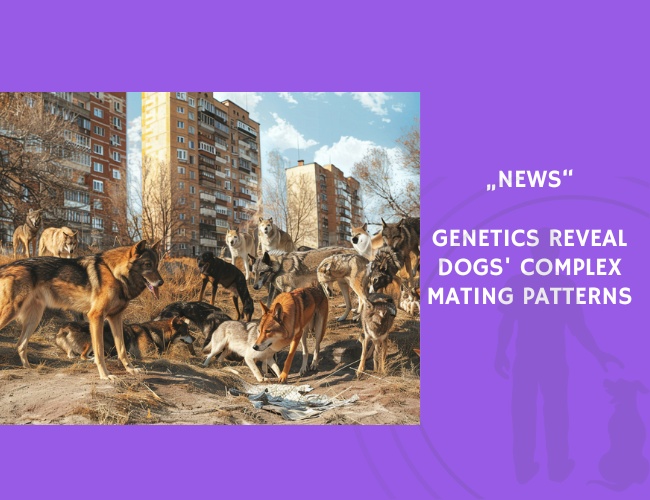A genetic study reveals how domestication altered dog mating: unlike wolves, free-ranging dogs mate with multiple partners across packs.
Dogs and wolves share ancestry, but their social and reproductive behaviors have diverged dramatically. A 2021 study in Behavioral Ecology led by E. Natoli and colleagues investigated the mating patterns of free-ranging domestic dogs (FRDs) using genetic pedigree reconstruction from genome-wide SNP data.
Unlike wolves, which typically form monogamous pairs and maintain tight family units, FRDs exhibit polygynandry—where multiple males and females reproduce within and across packs. These genetic findings matched field observations, showing interconnected kinship networks rather than isolated family groups.
Despite this, some wolf-like behaviors persisted, such as adult offspring remaining in natal packs and repeat pairings between the same male-female dyads. The researchers suggest that this flexible, non-monogamous structure likely emerged as dogs adapted to their human-dominated environment, shifting from apex predators to commensals.
This study demonstrates how ecological pressures linked to domestication reshaped the mating system of dogs, emphasizing the plasticity of canine social behavior under human influence.










